Researcher Profiles
Researchers in the School of Kinesiology are engaged in a wide range of research activities that are positively impacting how people engage with the world around them. Below are some examples of the work being done by faculty members and how it is or could be improving human health around the globe.
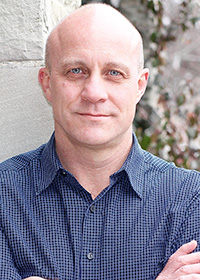 The neuro-transformative power of physical activity
The neuro-transformative power of physical activity
Your brain serves your life, but it is vulnerable to the way you live.
Canada Research Chair Kevin Shoemaker investigates the brain, its vascular supply, and its autonomic nervous system and the plasticity of these integrated systems in the face of changing physical activity patterns, age and chronic disease.
 The transformative power of sport
The transformative power of sport
Can sport for persons with disabilities change the way we think about equity, access and inclusion?
This is just one of the questions that professor Laura Misener examines through her program of research. She also investigates:
- Legacies of mega events to ‘inspire and excite’
- Sport and policy change for access and innovation
- Perceptions of para-sports
- Organizational management of para-sports
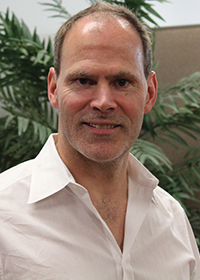 Biomechanics yield insights into injuries
Biomechanics yield insights into injuries
Can we prevent sports concussions based on players’ head impact exposure?
Biomechanist and professor Jim Dickey is digging deep into the world of sport to examine methods and technologies that could help build a better understanding of concussions as they relate to various types of athletes. He also investigates:
- Injury risk from occupational whole-body vibration
- The interplay between posture and vibration on risk of injury in occupational whole-body vibrations
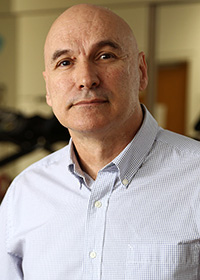 Applying exercise to smoking models
Applying exercise to smoking models
Can an acute bout of exercise reduce cigarette cravings in smokers engaged in an attempt to quit?
As Director of Western’s Exercise and Health Psychology Laboratory, this is just one of the questions that Harry Prapavessis examines through his program of research. He also investigates:
- Sedentary behaviour and health outcomes
- Ways to reduce sedentary behaviour
- Exercise and mental health
 Healthy moms = healthy babies = healthy communities!
Healthy moms = healthy babies = healthy communities!
Exercise and a healthy lifestyle during pregnancy and post-delivery have an impact on preventing chronic disease for both mother and baby.
As Director of Western’s Exercise and Pregnancy Laboratory, this is one area that professor and embryologist Michelle Mottola examines in her research program. She also investigates:
- Strategies for a healthy lifestyle during pregnancy and post-delivery
- How exercise and a healthy lifestyle impact women and their babies at risk for and diagnosed with diabetes during pregnancy
- Effects of exercise during pregnancy on mother and fetus
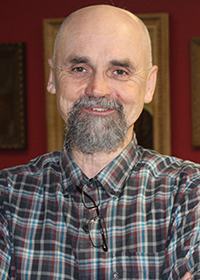 The cultural impacts of the Olympic spectacle
The cultural impacts of the Olympic spectacle
What are the global implications of the Olympic sport model?
This is the question that guides Michael Heine’s examination of the cultural and political impacts of the Olympic Games. As a global mega-spectacle, do the Olympic Games really deliver all the benefits that they claim to create? He also investigates:
- The cultural history of Indigenous physical activity practices
- The normative significance of the narratives that shape the cultural geographies of sports
- The political history of Canada’s Olympic teams
 Exercise and Type 1 Diabetes
Exercise and Type 1 Diabetes
Eliminating the exercise-related risk of hypoglycaemia development in patients with Type 1 diabetes
Exercise biochemist and professor Jamie Melling is investigating the role of different exercise modalities (strength vs. aerobic) and insulin treatment regimes in patients with Type 1 Diabetes. This work attempts to identify the ‘ideal’ exercise prescription that may offset the risk of hypoglycaemia in this population, while maintaining the cardiovascular benefits associated with regular exercise.
 Exercise your way to a healthy brain
Exercise your way to a healthy brain
Can exercise give older adults a brain boost?
With expertise in neuroscience and cognitive psychology, professor Lindsay Nagamatsu examines whether exercise can improve cognitive function and brain health in older adults. Using EEG and MRI, her research focuses on answering the following questions:
- How does exercise improve brain health?
- What type of exercise is the best?
- What are the effects of exercise in at-risk populations?
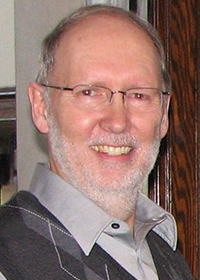 The science of exercise and nutrition
The science of exercise and nutrition
How does nutrition and/or regular exercise affect health and exercise performance?
Professor Peter Lemon’s research focuses on these important issues and his research group investigates other topics, including:
- The health benefits of diets consisting of whole foods
- Whether food supplements affect exercise performance
- How regular exercise (training) alters nutrient requirements
- If novel training methods and/or nutritional practices can impact the obesity epidemic
 Serving community through sport and physical activity
Serving community through sport and physical activity
How do non-profit sport organizations deliver recreational and competitive physical activity in the community, while addressing broader sport and social mandates?
With this focus, professor Alison Doherty addresses:
- What type of exercise is the best?
- What are the effects of exercise in at-risk populations?
 Sit less. Earn more.
Sit less. Earn more.
On paying people to be healthy...
Marc Mitchell is testing the impact of financial health incentives on physical activity and sedentary behaviours. He is the Scientific Lead for a new app called Carrot Rewards which rewards Canadians with SCENE, Petro and other points to walk more. His research extends beyond physical activity outcomes to include positive mental health “side effects” and social return on investment analyses, for example.”
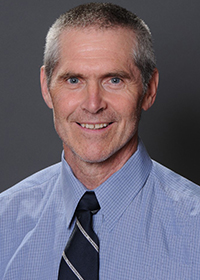 Faster, Higher, Stronger: The Physiology of Training and Performance
Faster, Higher, Stronger: The Physiology of Training and Performance
Empirical evidence is the key to peak performances.
Exercise physiologist Glen Belfry studies the acute and chronic physiological responses of physical activity and performance, in men and women, to facilitate personal success and satisfaction.
 The Brain Body Connection
The Brain Body Connection
How do changes in the nervous system affect muscle function?
Neurophysiologist and professor Anita Christie studies how the nervous system controls force production. In addition to typical, healthy function, she also examines how neuromuscular function is acutely and chronically impacted by:
- Advanced age
- Mild traumatic brain injury
- Neuromuscular and mental fatigue
 Weighing In
Weighing In
...on the Body, Mind and Self
Utilizing psychosocial frameworks, professor Eva Pila studies how feelings and thoughts about the body and self can impact health behaviours, mental health, and well-being. She draws on gendered perspectives to understand social and health conditions that disproportionately impact women.
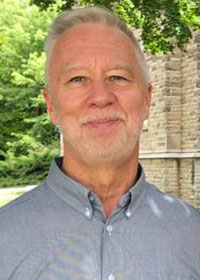 Voluntary Movement Control: The neural muscle connection
Voluntary Movement Control: The neural muscle connection
How is muscle force controlled, sustained or changed?
Charles Rice explores factors that affect the generation and control of skeletal muscle output including aspects of muscle structure and activation by the central nervous system under conditions of acute and chronic interventions such as exercise, fatigue, training, aging, and some clinical neuromuscular conditions.

